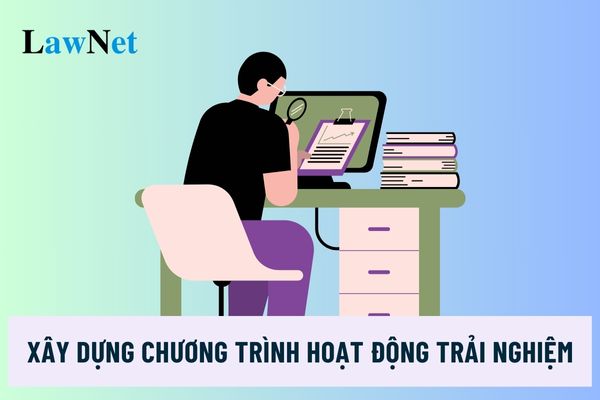Vietnam: What are the perspectives on developing the program on experiential activities for students at all education levels?
What are the perspectives on developing the program on experiential activities for students at all education levels in Vietnam?
Under Section 2 of the General Education Program on Experiential Activities issued together with Circular 32/2018/TT-BGDDT, the perspectives on developing the program on experiential activities for students at all education levels in Vietnam are as follows:
The Experiential Activities and Career Orientation Program adheres to the viewpoints, objectives, requirements to be achieved, educational plans, educational content, educational methods, assessment of educational results, conditions for implementation, and development of the general education program as stated in the overall Program. It also emphasizes the following perspectives:
- The program is developed based on activity theory, personality theory, experiential learning theory, and general educational theory; the advantages of current extracurricular educational activities and career orientation activities; international experience in developing Experiential Activities Programs and Career Orientation; the cultural identities of different regions, the traditional culture of Vietnam, and the shared cultural values of the era.
- The program ensures integrity, consistency, and continuous development across classes and educational levels. The program is designed both concentrically and linearly, from Grade 1 to Grade 12, with unified activity content strands: Self-directed activities, Social-directed activities, Nature-directed activities, and Career-oriented activities.
- The program ensures openness and flexibility. Educational institutions and teachers actively select content, methods, space, and time appropriate to their circumstances and conditions, based on the principle of ensuring the educational goals and the requirements for qualities and competencies expected for each class and educational level.
>> See the General Education Program on Experiential Activities issued together with Circular 32/2018/TT-BGDDT: Download

What are the perspectives on developing the program on experiential activities for students at all education levels in Vietnam? (Image from the Internet)
What are the general objectives of the General Education Program on Experiential Activities for students at all education levels in Vietnam?
Under Subsection 1, Section 3 of the General Education Program on Experiential Activities issued together with Circular 32/2018/TT-BGDDT, the general objectives of the General Education Program on Experiential Activities for students of all levels are as follows:
Experiential and Career Orientation activities foster and develop students' adaptability to life, design and organizational skills, and career orientation abilities. They also contribute to forming and developing essential qualities and competencies as stipulated in the overall Program.
Experiential and Career Orientation activities help students explore themselves and the world around them, enrich their spiritual lives, appreciate the beauty of nature and human relationships, form proper living and behavioral attitudes, and nurture a love for their homeland, nation, and a consciousness of their roots and national identity to contribute to preserving and developing the positive values of the Vietnamese people in an integrated world.
What are the specific objectives of the General Education Program on Experiential Activities for students at all education levels in Vietnam?
The specific objectives of the General Education Program on Experiential Activities for students at all education levels in Vietnam as stipulated in Section 3 of the General Education Program on Experiential Activities issued together with Circular 32/2018/TT-BGDDT are as follows:
(1) Objectives for Primary Education
Experiential activities instill in students positive daily habits, diligence in labor; fulfilling the responsibilities of a student at home, school, and in the local community; self-evaluation and self-adjustment skills; cultured communication and behavior habits; teamwork awareness and problem-solving skills.
(2) Objectives for Lower Secondary Education
Experiential and Career Orientation activities help students consolidate positive habits, disciplined study and daily routines, cultured communication and behavior habits, and focus on developing personal responsibility: responsibility to oneself, to family, and to the community; formation of personal values according to societal norms; problem-solving skills in life; work organization skills; interest in and understanding of several vocational fields; conscious cultivation of essential qualities of a worker; and the ability to formulate study and training plans aligned with career orientation upon completing basic education.
(3) Objectives for Upper Secondary Education
Experiential and Career Orientation activities help students develop the qualities and competencies formed at the primary and secondary education levels. By the end of career-oriented education, students will have the ability to adapt to various living, studying, and working conditions; adapt to changes in modern society; organize their lives, work, and self-management; develop career interests and make career choice decisions; and build training plans that meet career requirements, becoming useful citizens.

